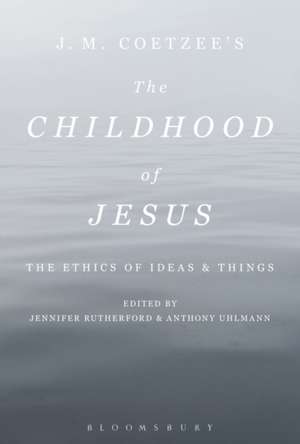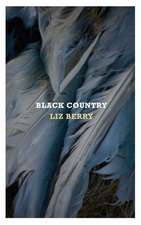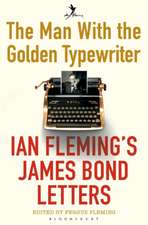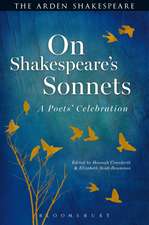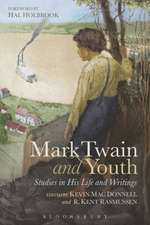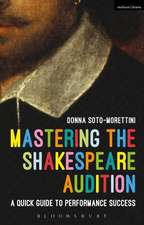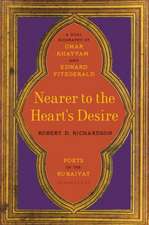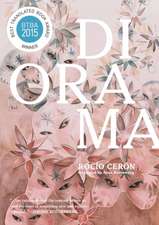J. M. Coetzee’s The Childhood of Jesus: The Ethics of Ideas and Things
Editat de Professor Anthony Uhlmann, Professor Jennifer Rutherforden Limba Engleză Hardback – 8 feb 2017
| Toate formatele și edițiile | Preț | Express |
|---|---|---|
| Paperback (1) | 236.63 lei 6-8 săpt. | |
| Bloomsbury Publishing – 22 aug 2018 | 236.63 lei 6-8 săpt. | |
| Hardback (1) | 714.12 lei 6-8 săpt. | |
| Bloomsbury Publishing – 8 feb 2017 | 714.12 lei 6-8 săpt. |
Preț: 714.12 lei
Preț vechi: 1027.45 lei
-30% Nou
Puncte Express: 1071
Preț estimativ în valută:
136.67€ • 142.15$ • 112.82£
136.67€ • 142.15$ • 112.82£
Carte tipărită la comandă
Livrare economică 14-28 aprilie
Preluare comenzi: 021 569.72.76
Specificații
ISBN-13: 9781501318627
ISBN-10: 1501318624
Pagini: 224
Dimensiuni: 152 x 229 x 20 mm
Greutate: 0.45 kg
Editura: Bloomsbury Publishing
Colecția Bloomsbury Academic
Locul publicării:New York, United States
ISBN-10: 1501318624
Pagini: 224
Dimensiuni: 152 x 229 x 20 mm
Greutate: 0.45 kg
Editura: Bloomsbury Publishing
Colecția Bloomsbury Academic
Locul publicării:New York, United States
Caracteristici
Affirms how contemporary literature can continue to offer astonishing insight into the intractable social, political and spiritual problems that confront us at the beginning of the 21st century
Notă biografică
Anthony Uhlmann is Director of the Writing and Society Research Centre at the University of Western Sydney, Australia. He is the author of Beckett and Poststructuralism (1999), Samuel Beckett and the Philosophical Image(2006), and Thinking in Literature (2011). From 2008-2013 he edited the Journal of Beckett Studies.Jennifer Rutherford is Director of the JM Coetzee Centre for Creative Practice at the University of Adelaide, Australia. She is the author of two books, including Zombies (2013).
Cuprins
Notes on ContributorsAcknowledgements1. IntroductionJennifer Rutherford (University of Adelaide, Australia) and Anthony Uhlmann (University of Western Sydney, Australia)Section One: Philological and Philosophical Concerns2. What Does J.M. Coetzee's Novel, The Childhood of Jesus Have To Do with the Childhood of Jesus?Robert Pippin (University of Chicago, USA)3. Pathos of the Future: Writing and Hospitality in Coetzee's The Childhood of JesusJean-Michel Rabaté (University of Pennsylvania, USA)Section Two: Socio-Political Concerns4. Thinking Through Shit in The Childhood of JesusJennifer Rutherford (University of Adelaide, Australia)5. Coetzee's Republic: Plato, Borges, and Migrant Memory In The Childhood Of JesusLynda Ng (Sydney University, Australia) and Paul Sheehan (Macquarie University, Australia)Section Three: Intertextual Concerns6. Creative Intuition: Coetzee, Plato, Bergson and MurnaneAnthony Uhlmann (University of Western Sydney, Australia)7. The Name of the Number: Transfinite Mathematics in The Childhood of JesusBaylee Brits (University of New South Wales, Australia)Section Four: Ethical Concerns8. J. M. Coetzee and the Parental PunctumSue Kossew (Monash University, Australia)9. Coetzee's The Childhood of Jesus and the Moral Image of the WorldTim Mehigan (University of Queensland, Australia)10. Beyond the Literary Theme Park: J. M. Coetzee's Late Style in The Childhood of JesusYoshiki Tajiri (The University of Tokyo, Japan)Index
Recenzii
These essays, overlapping in their concerns, offer many useful entries into a puzzling fiction that Rutherford likens to a fairy tale, in that 'it magnifies the darkness and complexity of being human.'
J.M. Coetzee's recent fictions are about what he calls 'second-order' questions. Always the self-conscious craftsman, Coetzee made the great historical conflicts of our time his particular métier, from Dusklands (1974) to Disgrace (1999). Now the attention falls more squarely on writing itself: on fictional representation, and on the place of ideas and ethics in story-telling. To explore this terrain, Coetzee takes us back to the apocryphal gospels and the foundations of culture in Plato and Cervantes. This new writing by Coetzee is as quirky as it is erudite and it demands a special kind of reader. J.M. Coetzee's The Childhood of Jesus: The Ethics of Ideas and Things assembles the best possible cast to illuminate one of Coetzee's most perplexing novels to date.
This remarkable collection provides an indispensable guide to unravelling the literary, philosophical and spiritual dimensions of Coetzee's enigmatic novel. Together, the essays form a highly suggestive, discordant and overlapping exploration of some the key ideas in this allusive work. They set a benchmark for the critical work of interpretation yet to come.
J.M. Coetzee's recent fictions are about what he calls 'second-order' questions. Always the self-conscious craftsman, Coetzee made the great historical conflicts of our time his particular métier, from Dusklands (1974) to Disgrace (1999). Now the attention falls more squarely on writing itself: on fictional representation, and on the place of ideas and ethics in story-telling. To explore this terrain, Coetzee takes us back to the apocryphal gospels and the foundations of culture in Plato and Cervantes. This new writing by Coetzee is as quirky as it is erudite and it demands a special kind of reader. J.M. Coetzee's The Childhood of Jesus: The Ethics of Ideas and Things assembles the best possible cast to illuminate one of Coetzee's most perplexing novels to date.
This remarkable collection provides an indispensable guide to unravelling the literary, philosophical and spiritual dimensions of Coetzee's enigmatic novel. Together, the essays form a highly suggestive, discordant and overlapping exploration of some the key ideas in this allusive work. They set a benchmark for the critical work of interpretation yet to come.
